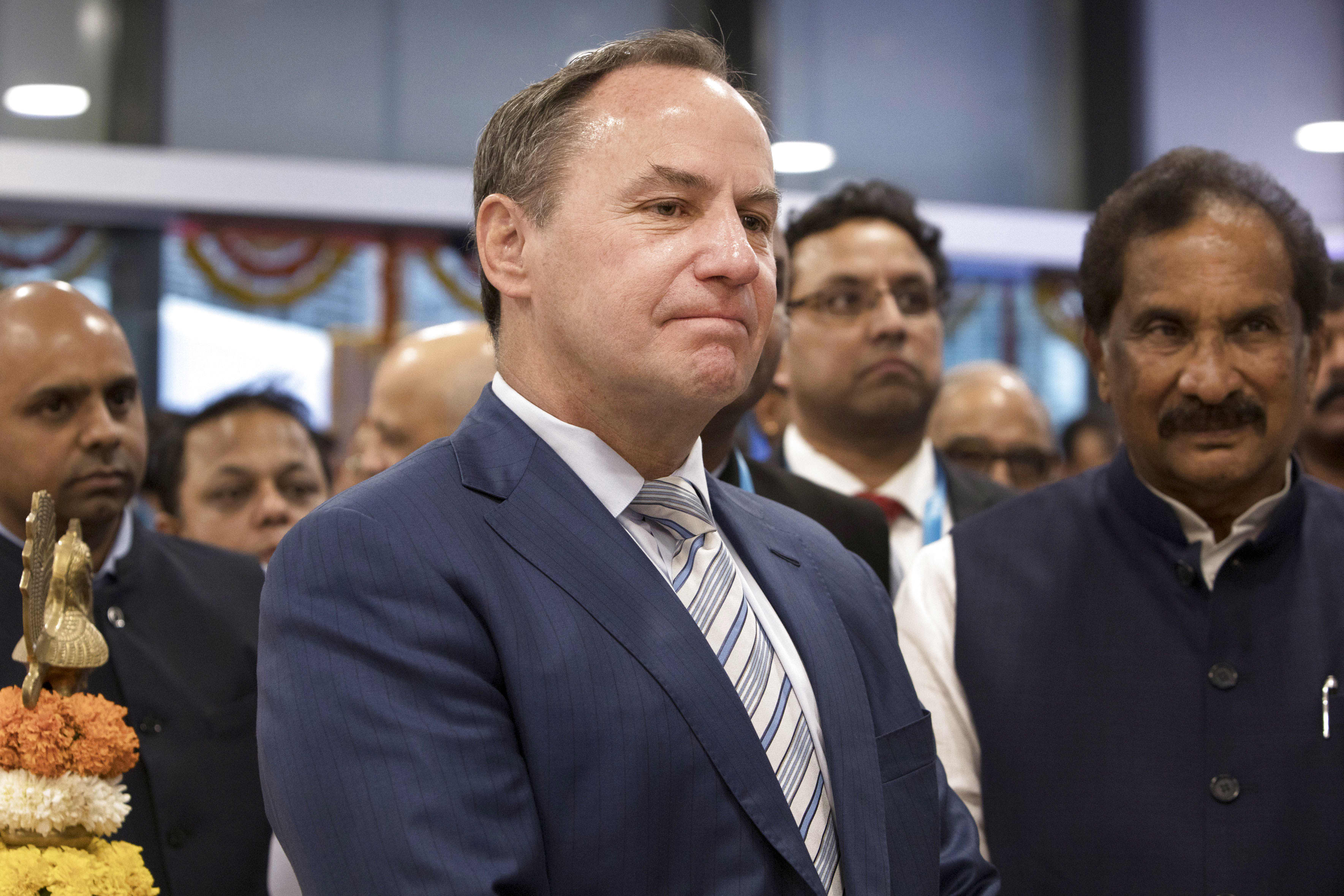Bob Swan, then-interim chief executive officer and chief financial officer of Intel Corp., reacts during the inauguration of the company’s research and development facility in Bengaluru, India, on November 15, 2018.
Samyukta Lakshmi | Bloomberg | Getty Images
Intel stock rose more than 6% on Thursday as the chipmaker reported earnings and revenue that exceeded investor expectations and its own forecast on Thursday, driven by strong PC sales.
Details of Intel’s earnings became available on financial wires minutes before the markets closed on Thursday.
The strong earnings report covering the quarter ending in last December comes a critical moment for the chip giant as Thursday’s report is the last with Bob Swan in the CEO role. On February 15, Pat Gelsinger takes over.
Here’s how Intel did:
- Earnings per share (EPS): $1.52, adjusted, vs $1.10 expected by Refinitiv consensus estimates.
- Revenue: $20 billion, vs $17.49 billion expected by Refinitiv consensus estimates.
- Forecast: Q1 2020 revenue of $18.6 billion and EPS of $1.03.
Intel also increased its cash dividend by 5% to $1.39 per share.
Intel said strength in PC sales helped it exceed its own expectations. It said that 33% more PCs with Intel chips were sold than during the same time last year. PC sales have been strong over the past year as people working or attending school from home look to upgrade their computers.
A leadership transition isn’t the only challenge facing Intel. In December, activist hedge fund Third Point urged Intel’s board of directors to make several changes to the company, including considering whether to outsource chip production or divesting parts of the business, such as acquisitions.
Third Point CEO Dan Loeb also honed in on Intel’s biggest problem in his December letter when he noted Intel has fallen behind Asian chip foundries in terms of its ability to manufacture the most advanced processors.
Intel’s latest chips use a 14 nanometer process, as they have since 2013, while competitor chips manufactured by TSMC are currently using a 5 nanometer process. A smaller process is better because more transistors can fit into the same chip, boosting power and efficiency.
Intel customers such as Apple, Amazon, and Microsoft have developed their own processors, or have signaled they intend to do so.
Gelsinger, who was most recently the CEO of VMWare, has a technical background and is expected to push Intel to become more competitive in terms of chip manufacturing. Intel said that it had started production of 10 nanometer chips during the quarter, and that it will start manufacturing more this quarter.
Intel said that Mobileye, its subsidiary working on self-driving car technology, saw sales rise 39% compared to the same time last year during the quarter. But Mobileye is still a small part of Intel — in 2020 it reported $967 million in sales, versus Intel’s PC group, which reported $40.1 billion in sales during the year.
